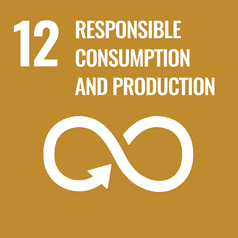$1.27m ARC Linkage funding to improve animal health and grow Australia’s biomanufacturing capability
Delivering innovative solutions to improve food security, public health and environmental sustainability, two University of Newcastle research teams have secured more than $1.27million through the latest round of the Australian Research Council (ARC) Linkage Projects funding.

From developing new veterinary drugs to eliminate harmful parasites in livestock, to pioneering carbon-negative methods for producing high-value biochemicals, the projects will strengthen key industries.
The Linkage Projects scheme is part of the ARC’s National Competitive Grants Program and provides funding to support projects that translate research into practical benefits, strengthening Australia’s innovation pipeline and boosting capabilities across sectors.
Combatting animal-borne infections to protect food security and human health
Animal-borne diseases remain a serious risk to both livestock productivity and human health. Alarmingly, 98 per cent of commercial chicken flocks in Australia are infected with the parasite Eimeria, and ruminants are increasingly affected by Toxoplasma gondii—a parasite that can cause severe illness or death in pregnant women and people with weakened immune systems. The same parasite is common in cats and transmissible to humans.
Led by University of Newcastle Professor Adam McCluskey in collaboration with Associate Professor Danny Wilson from the University of Adelaide, this project aims to develop new veterinary drugs capable of eradicating both Eimeria and T. gondii, helping to prevent transmission through the food chain and via pets.
By addressing diseases that impact both animals and humans, this research will enhance food safety, support Australia’s agricultural industries, and deliver global health benefits.
Funding awarded: $556,235
Collaborating partner: NEOCULI Pty Ltd
Sustainable biomanufacturing from cyanobacteria
Many high-value biochemicals used in medicine, agriculture and environmental monitoring are produced using costly methods that are detrimental to the environment. This project aims to develop a carbon-negative (photosynthetic) process for industrial-scale manufacturing of biochemicals.
Led by University of Newcastle Professor Brett Neilan and Dr Leanne Pearson, the research team will use synthetic biology to harness cyanobacteria (photosynthetic microorganisms) to sustainably produce pain-killing, metal-binding, and UV-blocking compounds. The approach offers a carbon-negative manufacturing pathway.
With applications in health care, food and water security, and industrial biotechnology, the project will help position Australia as a global leader in sustainable biomanufacturing.
Funding awarded: $718,476
Collaborating partner: Diagnostic Technology Pty Ltd
Contact
- Media & Communications Specialist, Penny Harnett
- Email: penny.harnett@newcastle.edu.au
Related news
- Healthy recognition: Dietitian earns prestigious Australian science honour
- University proposes new student accommodation at Callaghan Campus
- University proposes new student accommodation at Callaghan Campus
- New animal study links Williamtown PFAS levels to male reproductive impacts
- New animal study links Williamtown PFAS levels to male reproductive impacts
The University of Newcastle acknowledges the traditional custodians of the lands within our footprint areas: Awabakal, Darkinjung, Biripai, Worimi, Wonnarua, and Eora Nations. We also pay respect to the wisdom of our Elders past and present.



